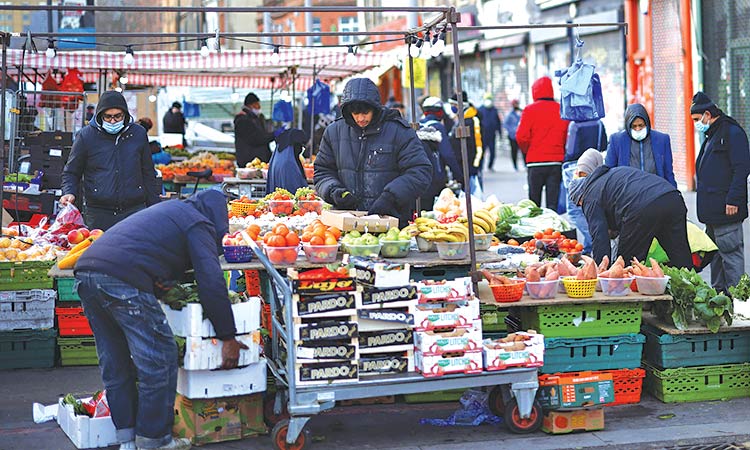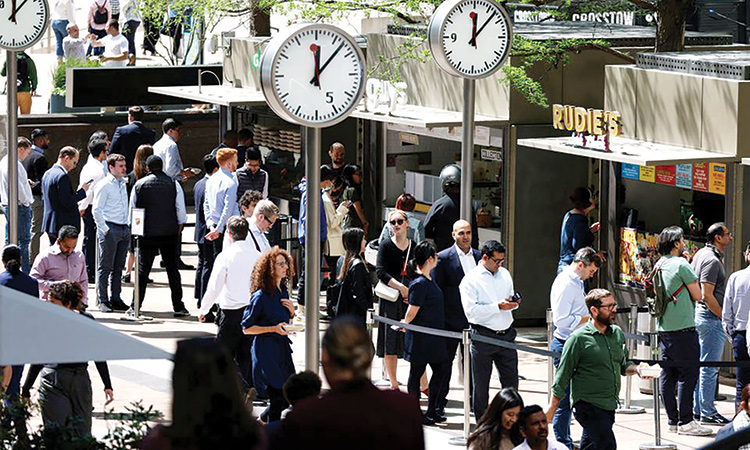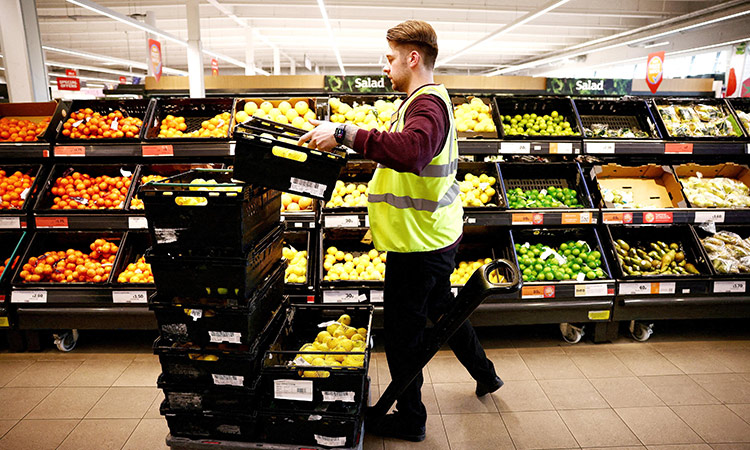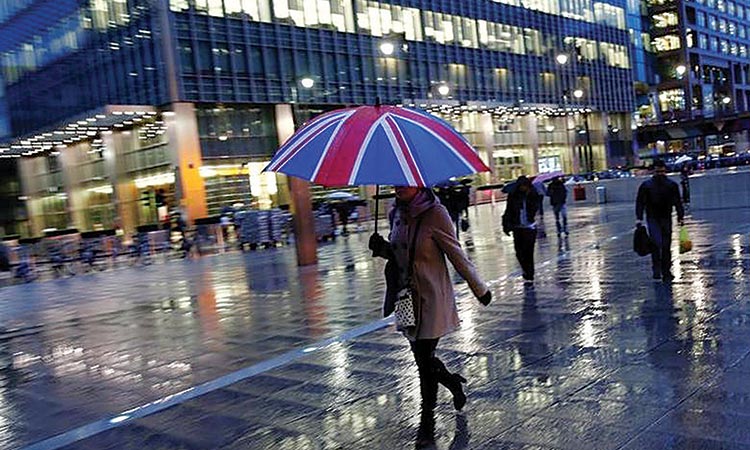British inflation rate falls more than expected to 10.1 per cent

People shop at a local store in London.
Economists polled by Reuters had forecast that the annual CPI rate would drop to 10.3 per cent in January, moving further away from October’s 41-year high of 11.1 per cent but still eating into the living standards of households.
Core CPI - which excludes energy, food, alcohol and tobacco - fell to 5.8 per cent in January from December’s 6.3 per cent, the Office for National Statistics said on Wednesday.
Sterling fell against the US dollar and the euro after the data.
Earlier this month the Bank of England (BoE) said it saw signs that the surge in consumer prices had turned a corner and it suggested it was close to ending its run of interest rate hikes.
Investors expect another increase in borrowing costs next month by the BoE but Wednesday’s data may add to the sense that a peak in Bank Rate is not far off.
Prices of services, which are also in the BoE’s spotlight, slowed their rise in January, up by an annual 6.0 per cent compared with 6.8 per cent in December.
“While any fall in inflation is welcome, the fight is far from over,” finance minister Jeremy Hunt said.
The ONS said transport and hospitality prices helped to drag down inflation last month.
Economists said the numbers added to signs that inflation was on course to fall further from its peak last year but could also herald the recession expected for Britain’s economy in 2023.
“The January inflation number is consistent with the weakness we have seen in retail in the past six months,” George Lagarias, chief economist at accountancy firm Mazars, said.
“It means that companies don’t have much more room to pass cost increases to consumers. All other things being equal, slowing inflation suggests further economic weakness ahead and, possibly, an uptick in unemployment.”
Sterling rose against the US dollar and the euro immediately after the data before easing back on Tuesday. Investors increased slightly their bets on the BoE raising interest rates by another quarter of a percentage point in March.
Ashley Webb, an economist with Capital Economics, said the labour market was likely to cool but Tuesday’s data suggested it would maintain the inflationary heat in the economy for some months yet.
“And with activity ending last year a bit stronger than the Bank had expected, we think the Bank of England may have one or two more rate hikes in the pipeline,” Webb said.
Despite the higher-than-usual pace of pay growth, workers are seeing their incomes eroded by an inflation rate that remains above 10 per cent.
Total pay, adjusted for the consumer price index which is targeted by the BoE, fell by 4.3 per cent in the last three months of 2022 compared with the same period in 2021, the biggest fall since early 2009.
The unemployment rate held at 3.7 per cent in the three months to December, in line with the Reuters poll and not far above its lowest level in almost 50 years. But there were signs of further weakening in the labour market. Vacancies in the November-to-January period fell for a seventh time in a row, down by 76,000 to 1.134 million.
And the economic inactivity rate - or the share of people not in work and not looking for it - fell in the three months to December to 21.4 per cent, 0.3 percentage points lower than the previous three-month period.
The ONS said there was a record flow of people moving out of economic inactivity during the October-to-December period as increasing numbers returned to work, potentially easing one of the BoE’s concerns about the labour market.
British finance minister Jeremy Hunt is working on measures to boost the activity rate ahead of his annual budget statement to parliament on March 15.
The ONS said redundancies edged up while a ratio of unemployed people to vacancies at the end of 2022 ticked up to 1.1 although it was lower than pre-pandemic levels of about 1.6.
Meanwhile Britain’s FTSE 100 closed marginally higher on Tuesday, paring early gains as mixed US inflation data did little to soothe concerns about further Fed tightening, while strong gains by Vodafone drove other telecom stocks higher too.
The blue-chip FTSE 100 closed up 0.08 per cent after hitting a record high during the session, while the FTSE 250 midcap index dropped 0.5 per cent.
US consumer inflation accelerated in January, stoking expectations that the Federal Reserve is far from pausing its interest rate hiking cycle. The monthly reading was 0.5 per cent from 0.1 per cent in December.
“Stickier inflation would encourage the US, Fed to keep applying the brakes through higher interest rates and to hold their foot down on the pedal for longer,” said Laith Khalaf, head of investment analysis at AJ Bell.







